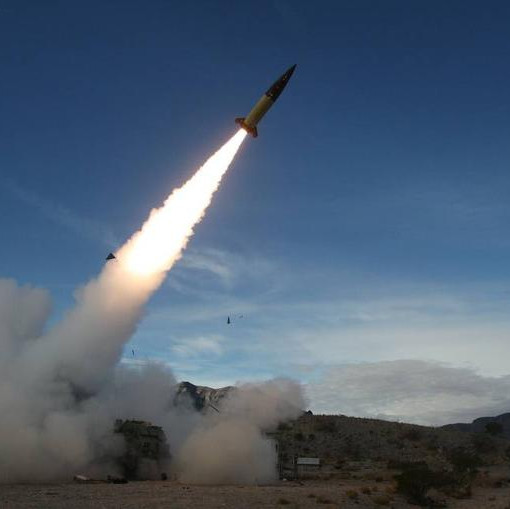This year, Moscow and Washington will have to discuss the fate of an important agreement on measures to further reduce and limit strategic offensive weapons (START-3), which expires on February 5, 2021. The two countries have less than 13 months at their disposal, which is quite a narrow term to discuss a treaty of this level. Its importance is brought by being the last barrier to restrain the nuclear arms race. Especially given that in August last year, the United States unilaterally withdrew from the Intermediate Nuclear Forces (INF) Treaty.
The difficulty of the upcoming negotiations on START-3 is that Washington does not currently seem eager to extend this treaty. By the way, the START-3 remains the last one which the United States has not quit. It is from this point of view that 2020 is particularly important for maintaining global control over the nuclear arms race at a time when virtually all of its key Cold War era elements are under threat. There is no doubt that the new year will prove decisive as regards negotiating this issue.
We will try to figure out why Washington does not seek to extend this agreement, even though Moscow suggests doing it immediately and without any preconditions. The White House has yet to respond to Kremlin's proposals, voiced by Russian President Vladimir Putin in late 2019. With his statement, the Russian leader made it clear that Moscow advocates the START-3 Treaty extension. All the more so as it can be extended by the presidents of Russia and the United States for another five years by mutual agreement and without the need to obtain consent of the State Duma and the Senate.
It should be noted that US President Donald Trump has repeatedly expressed criticism over the START-3 Treaty, considering it a bad deal beneficial to Russia alone. The current head of the White House, be it noted, is generally suspicious of all the international agreements concluded by his predecessor Barack Obama, deeming them harmful to American interests. Suffice it to recall Washington's withdrawal from the Paris climate agreement in 2017 and from the Joint Comprehensive Plan of Action on Iran's nuclear program a year later. So the current US President's negative attitude to START-3 seems not so very strange – this document was signed by Obama after all.
Significantly, the Trump administration's foreign policy is generally unpredictable and difficult to seriously analyze. At the same time, during his three years in office, the 45th President of the United States has made it clear he is comfortable with terminating any international agreements, sometimes missing their key point and demonstrating an absolute lack of awareness of their content, despite criticizing them sharply. America's withdrawal from the INF is a clear proof of this. In this regard, there is serious concern that President Trump may do the same with the START-3 Treaty. After George W. Bush's administration waiver of the Anti-Ballistic Missile Treaty (ABM) in 2001 and the withdrawal from the INF Treaty under President Trump, the problem of extending START-3 looks particularly crucial.
As of today, the United States declares its desire to enter the negotiation process, while stipulating a number of virtually unfeasible conditions. Thus, Washington wants the new deal to cover not only strategic, but also tactical nuclear weapons that fall outside START- 3 requirements. Besides, the American side insists that the new treaty turn trilateral to involve China. However, official Beijing has repeatedly stated its lack of interest in such an arms control agreement.
The Chinese side's stance is quite understandable, because currently 90% of the world's nuclear weapons fall to the share of Russia and the United States. For this reason, Beijing offers its own option for taking part in the new agreement: either the United States reduces its nuclear arsenal to the Chinese level or China raises the number of its nuclear warheads to the level of the United States.
It is worth pointing out that within the United States itself, the issue of renewing START-3 gets mixed reaction either. At the same time, the stances of both those supporting and opposing the nuclear deal appear as a bipartisan consensus. START-3 opponents from among the American "hawks" are grouped around former US President's national security adviser John Bolton. Often it is their opinion that President Trump conveys.
At the same time, the voices of agreement extension supporters are no less strong. Those include democratic senators Robert Menendez, Christopher van Hollen, their Republican colleague Todd Young, Democratic House member Edward Markey, and a number of other congressmen. The extension of the strategic arms treaty is also advocated by several high-ranking military officials aware of the danger of a further arms race that brings the world to the verge of a nuclear disaster. Significantly, the US NATO allies represented by the UK, Germany and France also support the extension of the START-3 Treaty.
To all effects and purposes, this year Russia and the United States are simply obliged to sit down to negotiate START-3. Perhaps this treaty should be first of all extended in a bilateral format, with China involved at the next stage. The world had previously survived a period of an unrestrained arms race, when humanity stood on the threshold of the third world war. This way will not definitely lead the people of our planet to a happy tomorrow. It is for this reason that the START-3 extension is critically important, and Moscow is perfectly cognizant of this. Now it is time for Washington to grasp this idea.









